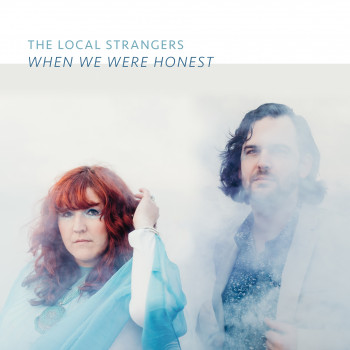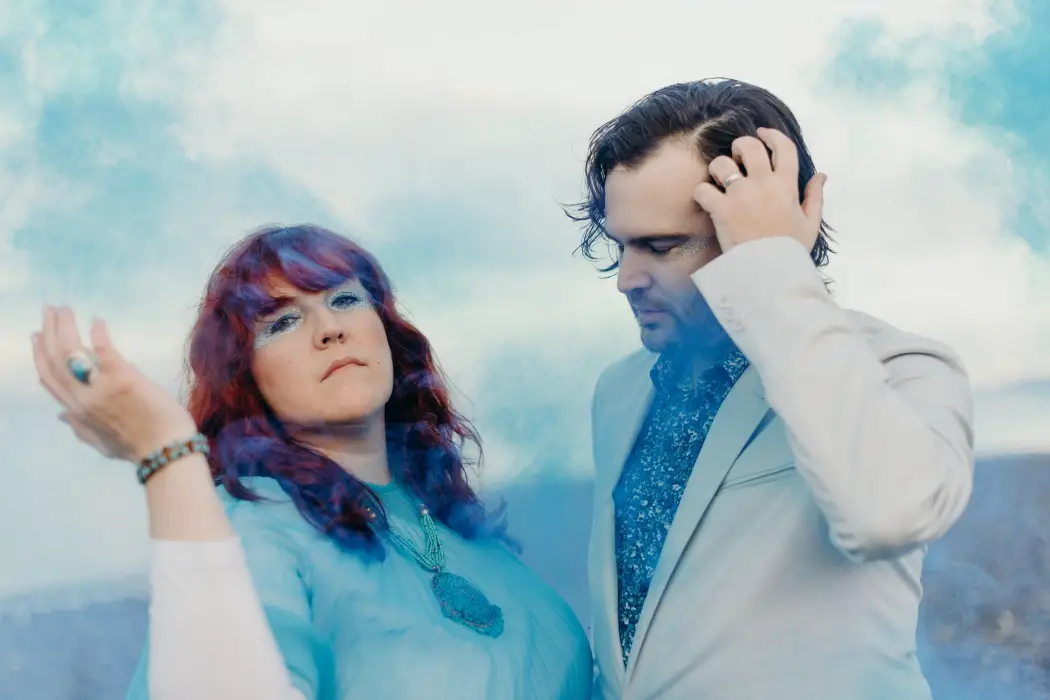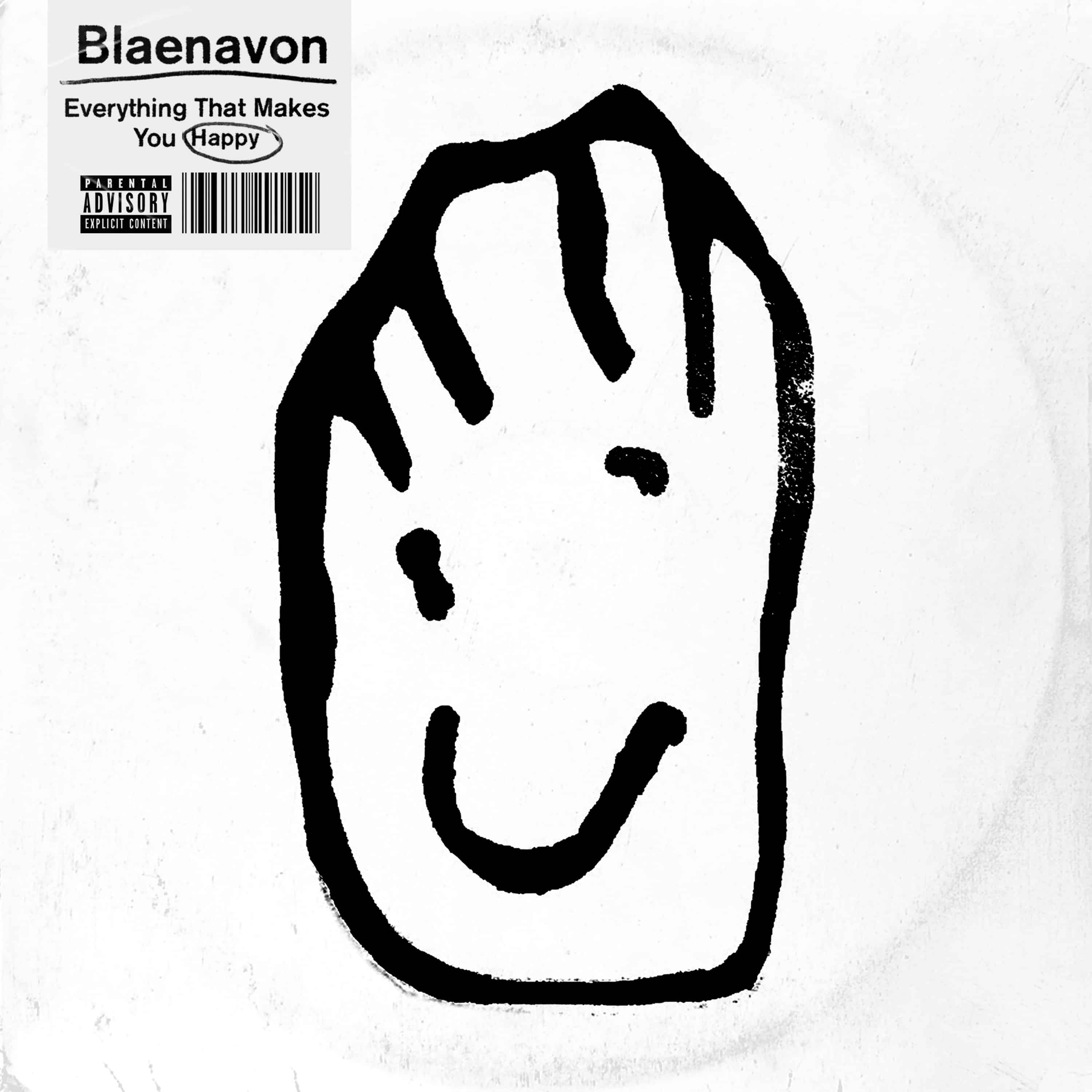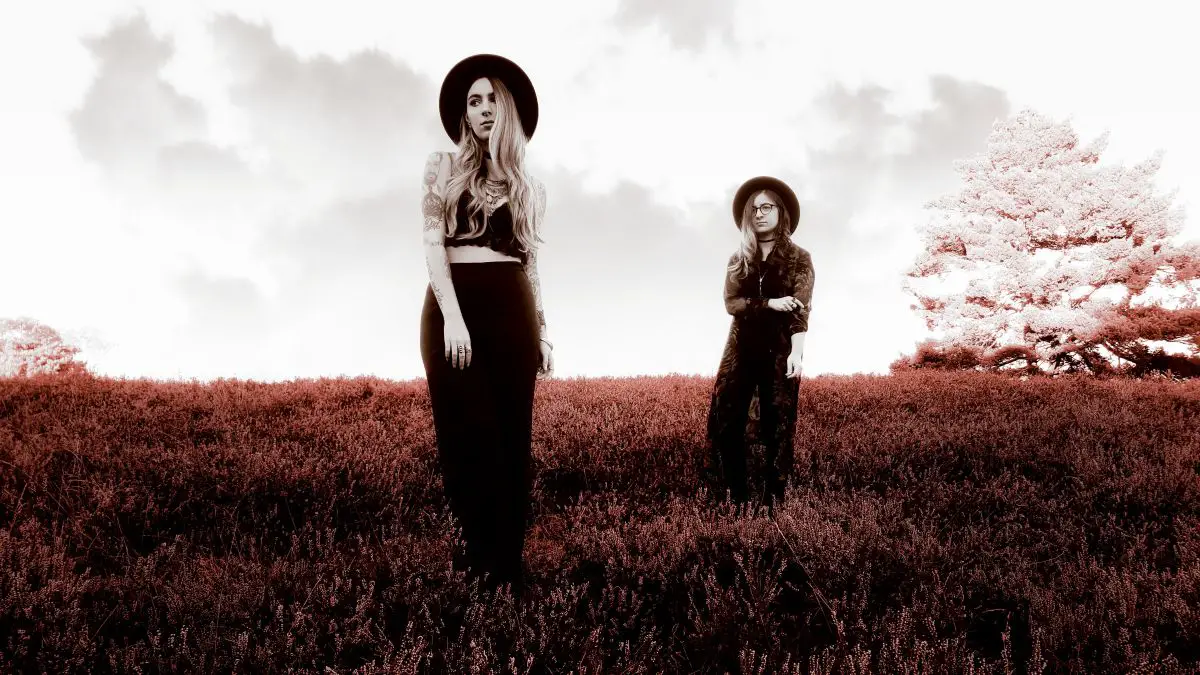The Local Strangers’ third album When We Were Honest is a beautiful folk rock mess of raw emotion and impassioned harmonies longing for release, understanding, and a home.
‘When We Were Honest’ – The Local Strangers
[soundcloud url=”https://api.soundcloud.com/playlists/712536222?secret_token=s-88oeJ” params=”color=%2394b9c9&auto_play=true&visual=true&hide_related=false&show_comments=true&show_user=true&show_reposts=false” width=”100%” height=”450″ iframe=”true” /]Fire burns; it seems we never learn which way to turn until it’s over.
If conflict fuels a storyline, then The Local Strangers’ When We Were Honest is as hot as they come. The independent Seattle band led by Aubrey Zoli and Matt Hart have been gracing audiences with their distinctive blend of folk, rock, and Americana for nearly a decade now, and this time around their fire is at an all-time roar: Out Friday, June 28, The Local Strangers’ third album When We Were Honest is a beautiful mess of raw emotion and impassioned harmonies longing for release, understanding, and a home.

Atwood Magazine is proud to be premiering When We Were Honest, a dynamic medley of warm sounds and rampant tensions. Following 2015’s Take What You Can Carry and 2012’s Left For Better, When We Were Honest finds Zoli, Hart, and their talented five-piece backing band deep in the thick of pressure’s volatile grasp – yet whether they’re struggling to breath or cherishing a singular experience, The Local Strangers carry themselves with inspired grace. Every song is carefully crafted around Zoli and Hart’s astonishing vocals and accompanying harmonies: The power the pair bring to the table is a testament to their own individual skills, as well as almost ten years and over 20,000 miles of touring together.
Whereas the ambitious and expansive two-disc Take What You Can Carry displayed The Local Strangers in a range of musical habitats, When We Were Honest hones in on a few key radiant elements. The band’s folk rock roots shine in songs like “Left Behind” and “Reset,” while tracks like opener “How Do You Like Me Now” and “We’re Going Down” show a deepening interest in the harder jams and croons of blues and Southern rock. The songs “Solid Ground” and “After the Flood” reflect a continued love for sweet balladry – both of these tracks radiate emotional strength through subtle tone shifts and, once again, the Zoli and Hart’s entrancing harmonies.
Seldom does such stripped sweetness match well against throttling overdriven guitars, and yet it all works fluidly across the many spectrums of When We Were Honest – a searing, stirring, and downright thrilling adventure that finds this humble Seattle band taking another giant leap forward in their career.
Experience the full record via our exclusive stream, and peek inside The Local Strangers’ sweeping When We Were Honest with Atwood Magazine as the band go track-by-track through the music and lyrics of their third studio album!
‘When We Were Honest’ – The Local Strangers
[soundcloud url=”https://api.soundcloud.com/playlists/712536222?secret_token=s-88oeJ” params=”color=%2394b9c9&auto_play=false&visual=true&hide_related=false&show_comments=true&show_user=true&show_reposts=false” width=”100%” height=”450″ iframe=”true” /]:: Inside When We Were Honest ::

— —
How Do You Like Me Now
“How Do You Like Me Now” is about the futility of trying to conform to anyone else’s judgments or impossible expectations. There is so much power in letting that go and standing tall with a strong sense of self. This song is rooted in that moment of realization.
Left Behind
“Left Behind” — the “tragic song in a major key” — accepts what cannot be changed or undone, but does not pretend that acceptance makes the loss any less painful. It carves away the things that are false to expose what is true, and to look it in the face.
We’re Going Down
There is a gritty foreboding that builds throughout “We’re Going Down;” a song about the existential anxiety of the modern world in the face of climate change and political upheaval. When that tension finally releases, it’s desperate and wild.
Once Broken
“Once Broken” explores that vulnerable place at the beginning of a relationship when the potential is clear and past demons, mistakes, and scars tend to rear their heads. The best we can do is try to let go of the past, see the present clearly, and come clean together; stepping into tomorrow with an open heart.
Steady
“Steady” is defiant and proud. Something has to give, and riding out this storm is going to hurt like hell, but you’re going to make it through no matter what (with the scars to show for it).
After the Flood
“After the Flood” of bliss and wonder in a new relationship, comes a more challenging reality. We fall into habits, habits can become ruts, ruts can become trenches, and suddenly we are on opposing sides trying to decide what we are fighting for. While facing that crushing reality, this song is ultimately hopeful that a path forward, together, is possible.
Not Missing
“Not Missing” is an empowering song about moving on from something toxic; yet it is also about getting stuck in doubt and confusion. It’s swampy and off-kilter, unsure of which way is up, which way is out, and which feelings are the most real.
Reset
“Reset” is about yearning for a big change, yet feeling helpless and unable to be the catalyst of that change. Sometimes happiness becomes more challenging, and the lines between solutions and coping mechanisms are blurred. “Reset,” even with its crescendos and catharsis, is stuck in that cycle.
Solid Ground
Timing is everything, and “Solid Ground” describes a relationship that has everything except good timing. It’s hopeful that patience and care can fend off the storm, even if the end result might not be what we first expected.
The Road You’re On
“The Road You’re On” is brutally honest, but also empathetic. It doesn’t sugar coat the situation, but it knows what you’re going through. It doesn’t provide an easy solution, but it proves that there are other choices beyond a crash landing, and for now that might be enough.
Settle Down
“Settle Down” is about a relationship crumbling under the weight of expectation. The final crescendo is a release of all the anguish, fear, doubt, and disappointment of a life lived for the needs and approval of others instead of oneself. It’s a cautionary tale, picturing what happens if the realization central to “How Do You Like Me Now” happens far too late.
— — — —

Connect to The Local Strangers on
Facebook, Twitter, Instagram, Web
Discover new music on Atwood Magazine
? © Kendall Rock








